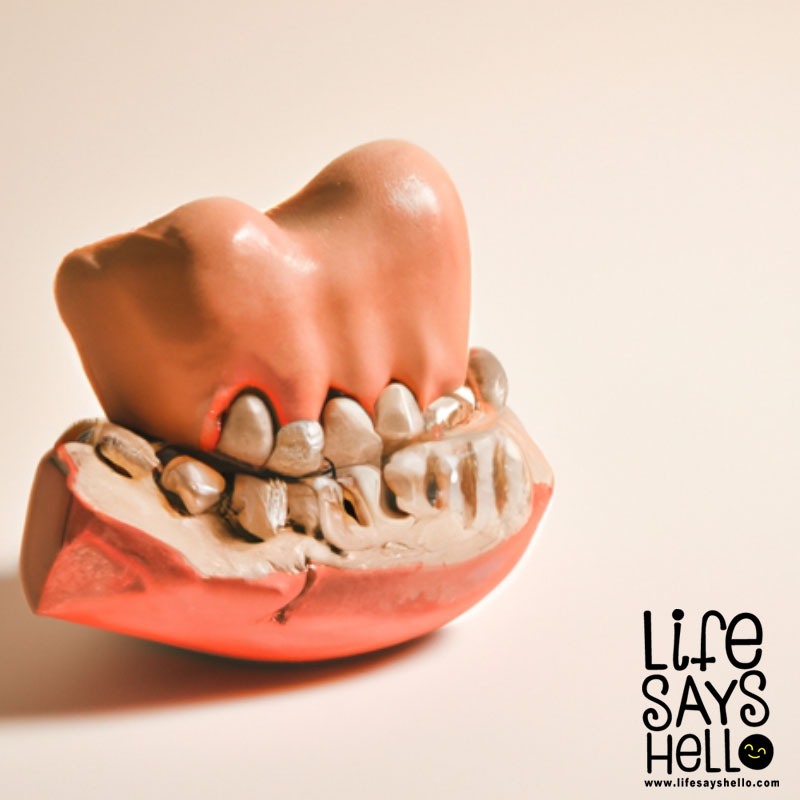Why Do We Have Wisdom Teeth? Unraveling the Mystery of Our Third Molars

Have you ever wondered why we have wisdom teeth, those seemingly unnecessary and often troublesome third molars? Join us as we dive into the fascinating world of wisdom teeth, exploring their evolutionary origins, purpose, and the common issues they can cause.
Wisdom teeth, also known as third molars, are a topic of great curiosity and confusion for many people. These mysterious teeth often make their appearance in our late teens or early twenties and can cause a variety of issues, leading us to wonder why we even have them in the first place. In this article, we'll explore the fascinating history of wisdom teeth, their evolutionary purpose, and the common problems they can create. So, sit back and get ready to learn everything you've ever wanted to know about wisdom teeth!
The Evolutionary Origins of Wisdom Teeth
To understand why we have wisdom teeth, it's essential to look back at our ancestors and their way of life. Our distant relatives had a very different diet from ours, relying heavily on tough, fibrous plant material and raw meat. This type of food required a lot of chewing power to break down, and having an extra set of molars at the back of the jaw was extremely helpful.
As humans evolved, our jaws and skulls underwent significant changes. One of the most notable shifts was the reduction in the size of our jaws, which is believed to be a result of our transition to a more varied and softer diet. As we began cooking our food and incorporating more easily digestible items into our meals, the need for powerful chewing decreased, and our jaws adapted accordingly.
As our jaws shrank, however, there was less room for all of our teeth, including the third molars. This lack of space is the primary reason why wisdom teeth often cause problems today. But before we delve into those issues, let's first examine the function of wisdom teeth in modern humans.
The Function of Wisdom Teeth Today
In today's world, wisdom teeth don't serve a significant purpose for most people. Our diets have evolved to include softer, more processed foods that don't require the extra chewing power that wisdom teeth once provided. In fact, some individuals never develop wisdom teeth at all, which is a phenomenon known as agenesis.
Agenesis of wisdom teeth is more common in certain populations and is believed to be influenced by genetic factors. For example, studies have shown that people of Asian descent are more likely to be missing one or more wisdom teeth than individuals of European or African ancestry. This variation in the presence of wisdom teeth is further evidence that they are no longer necessary for our survival and well-being.
Common Issues with Wisdom Teeth
Despite their lack of function in modern humans, wisdom teeth can still cause a host of problems when they attempt to erupt, or emerge, from the gumline. The most common issue is impaction, which occurs when there isn't enough space in the jaw for the wisdom tooth to fully emerge. This can lead to the tooth becoming trapped beneath the gum or only partially erupting, which can cause pain, swelling, and infection.
Another common problem associated with wisdom teeth is crowding. As the third molars push their way into the already limited space in the jaw, they can cause the other teeth to shift and become misaligned. This can lead to discomfort, difficulty chewing, and an increased risk of gum disease and tooth decay.
Given these potential complications, it's no surprise that wisdom teeth extraction is a common dental procedure. In fact, it's estimated that around 85% of people will need to have at least one wisdom tooth removed during their lifetime. But is wisdom teeth removal always necessary? Let's weigh the pros and cons.
Wisdom Teeth Removal: Pros and Cons
There are several benefits to having wisdom teeth removed, particularly if they are causing pain, infection, or other issues. Some of the advantages of extraction include:
- Preventing complications: Impacted wisdom teeth can lead to a variety of problems, such as cysts, tumors, and damage to adjacent teeth. Removing the problematic teeth can help prevent these complications from occurring.
- Improving oral hygiene: Crowded teeth can be difficult to clean, increasing the risk of gum disease and tooth decay. By removing wisdom teeth and alleviating crowding, it may become easier to maintain good oral hygiene.
- Relieving pain and discomfort: If wisdom teeth are causing pain, swelling, or other forms of discomfort, extraction can provide significant relief.
However, there are also potential risks and drawbacks to wisdom teeth removal, including:
- Complications: As with any surgical procedure, there are risks involved in wisdom teeth extraction, such as infection, bleeding, and nerve damage. However, these complications are relatively rare and can usually be managed effectively by a skilled oral surgeon.
- Recovery time: The recovery period following wisdom teeth removal can be uncomfortable and may require a few days of rest and a soft food diet. Pain, swelling, and bruising are common but typically subside within a week or two.
Ultimately, the decision to have wisdom teeth removed should be made in consultation with a dentist or oral surgeon, who can assess each individual's unique situation and provide personalized advice.
Conclusion
So, why do we have wisdom teeth? The answer lies in our evolutionary past, when our ancestors relied on these extra molars to help them chew their tough, fibrous diets. Over time, our jaws have adapted to our changing diets, and wisdom teeth have become less necessary for our survival. However, their continued presence can cause a variety of issues, from impaction to crowding, leading many people to opt for extraction.
If you're experiencing problems with your wisdom teeth or are unsure whether extraction is the right choice for you, be sure to consult with your dentist for personalized guidance. And remember, you're not alone – wisdom teeth have been puzzling humans for centuries, and understanding their origins and purpose can help demystify these enigmatic third molars.




Comments